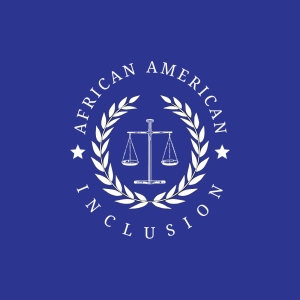African Americans and DEA
The Drug Enforcement Administration (DEA) is a federal law enforcement agency tasked with enforcing drug laws and regulations in the United States. The DEA plays a vital role in the war against drugs and is responsible for investigating and disrupting drug trafficking organizations.
African Americans make up a significant portion of the United States population, and their representation in law enforcement agencies such as the DEA is essential. However, the number of African Americans in the DEA has been historically low, and efforts to increase diversity in the agency have been ongoing.
According to the DEA’s 2020 statistics, African Americans make up 13% of the total workforce in the agency. While this number is higher than it was a few years ago, it is still below the representation of African Americans in the overall U.S. population, which stands at around 14%.
To become a DEA agent, regardless of race or ethnicity, candidates must meet certain requirements. Being a U.S. citizen, between 21 and 36 years old. Candidates must have a four-year degree from an accredited college or university. This degree can be in any field of study, although degrees in criminal justice, law enforcement, or a related field may be particularly helpful.
In addition to the educational requirement, candidates must also have at least three years of work experience in a field that demonstrates the necessary skills and abilities to perform the duties of a DEA agent. This experience can be in any field, but experience in law enforcement, military service, or a related field may be particularly beneficial.
To get hired in the DEA, candidates must first apply online through the DEA’s website. The application process includes a written test, a physical fitness test, and an interview. Candidates who pass these tests will then undergo an extensive background investigation, which includes a polygraph examination.
Finally, it’s important to keep in mind that becoming a DEA agent is a highly competitive process, and meeting the minimum education and experience requirements does not guarantee that a candidate will be hired. Candidates must also pass a series of rigorous assessments, including a written test, a physical fitness test, and an extensive background investigation, as well as an interview and drug test.
One of the major challenges in recruiting African Americans to work in the DEA is the negative perception of law enforcement in the African American community. The issue of police brutality and discrimination has led to a mistrust of law enforcement, and many African Americans may not see law enforcement as a viable career option.
Another challenge in recruiting African Americans to the DEA is the educational requirements. The DEA requires candidates to have a four-year degree from an accredited college or university, which may be a barrier to entry for some African Americans who may not have access to higher education.
To increase diversity in the DEA, the agency has implemented various initiatives to attract and retain African Americans. One such initiative is the DEA’s Diversity and Inclusion Plan, which outlines specific goals and strategies for increasing diversity within the agency.
African Americans can take several steps to increase their representation in the DEA:
- Pursue higher education: The DEA requires candidates to have a four-year degree from an accredited college or university. African Americans who are interested in becoming DEA agents should pursue higher education and obtain a degree in a field that aligns with their interests and career goals.
- Seek out internships and work experience: AfricanAmericans who are interested in a career with the DEA should seek out internships and work experience in related fields, such as law enforcement, criminal justice, or the military. This experience can help candidates build the necessary skills and abilities to perform the duties of a DEA agent and make them more competitive in the hiring process.
- Build a network: African Americans who are interested in a career with the DEA should build a network of contacts in the law enforcement community. This can include attending job fairs, networking events, and conferences, as well as reaching out to current and former DEA agents for advice and guidance.
- Be aware of recruitment efforts: The DEA has made efforts to increase diversity within the agency, including hiring more African Candidates should stay informed about recruitment efforts, such as job postings and recruitment events, and actively seek out opportunities to apply for DEA positions.
- Advocate for diversity and inclusion: African Americans who are already employed by the DEA can advocate for diversity and inclusion within the agency. This can include serving as mentors to new hires, participating in employee resource groups, and providing feedback to leadership on ways to improve diversity and inclusion initiatives.
By taking these steps, African Americans can increase their representation in the DEA and contribute to a more diverse and inclusive law enforcement community.



